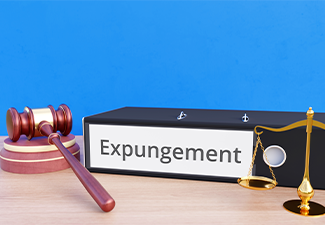Can Expungement Be Denied? What to Do if That Happens
Jan. 21, 2025
 Expungement offers individuals the opportunity to clear their criminal records, potentially opening doors to employment, housing, and other opportunities. However, the process isn’t always straightforward, and petitions for expungement can be denied for a variety of reasons.
Expungement offers individuals the opportunity to clear their criminal records, potentially opening doors to employment, housing, and other opportunities. However, the process isn’t always straightforward, and petitions for expungement can be denied for a variety of reasons.
For those living in St. Louis, Missouri, understanding the state’s specific expungement laws is key to moving forward after a denial. The Hardin Law Firm has extensive experience in helping individuals pursue expungement with the guidance of a dedicated criminal defense lawyer. Call them today for more information.
Knowing what to do if your request is denied can make a meaningful difference in your path toward a fresh start.
Why Expungement May Be Denied in Missouri
Missouri’s expungement laws allow individuals to clear eligible offenses from their criminal records, but several factors can lead to a petition being denied. One common reason is that the offense in question may not qualify for expungement.
Missouri law specifically excludes certain crimes, including Class A felonies, violent offenses, and sex crimes, from being expunged. Additionally, individuals with pending charges or unresolved legal obligations, such as unpaid fines or restitution, may face denial.
Timing also plays a significant role. Missouri requires a waiting period after the completion of your sentence before you can file for expungement. For misdemeanors, this is typically three years, while felonies require a waiting period of seven years. Filing too soon can result in an automatic denial.
Errors in documentation or procedural missteps can also jeopardize your petition. Courts expect thorough and accurate paperwork, and any oversight may lead to rejection. Working with a criminal defense lawyer can help confirm that your petition is properly prepared and filed.
Steps to Strengthen Your Expungement Petition
Preparing a strong expungement petition requires careful attention to detail. Begin by verifying that your offense qualifies for expungement under Missouri law. Researching specific statutes and eligibility criteria is a critical first step.
For instance, Missouri allows the expungement of certain drug offenses, theft crimes, and misdemeanors, but it’s important to confirm that your case meets the required conditions.
To strengthen your petition, focus on demonstrating rehabilitation. Courts often consider whether an individual has made positive changes since their conviction. Evidence of rehabilitation can include:
Character references
Proof of stable employment
Documentation of community involvement
Addressing any outstanding legal obligations, such as unpaid court costs or restitution, is equally important. This step demonstrates accountability and a commitment to moving forward responsibly.
Accuracy in documentation can’t be overstated. Review your petition and accompanying documents carefully to avoid errors that could delay or derail the process. If you’re unsure about any aspect of the paperwork, consulting a criminal defense lawyer can help you manage these intricacies and avoid common pitfalls.
What to Do If Your Petition Is Denied
A denial doesn’t have to be the end of the road. The first step is understanding why your request was denied. Courts typically provide reasons for their decisions, and identifying the specific issues with your petition can help you decide on your next steps.
If the denial is due to procedural errors or missing documentation, addressing these issues and refiling your petition may resolve the problem. For example, if your petition was incomplete or lacked required supporting documents, correcting these errors can improve your chances of approval.
In cases where the denial is based on legal grounds, such as ineligibility of the offense, seeking alternative remedies may be necessary.
Missouri law provides options beyond expungement for individuals seeking relief from the consequences of a criminal record. Pardons, for instance, can restore certain rights and provide evidence of rehabilitation. Certificates of rehabilitation are another option that can demonstrate to employers and landlords that you’ve made positive changes since your conviction.
If you believe the denial was made in error, you may have the option to appeal the decision. Appeals typically involve arguing that the court misinterpreted the law or overlooked critical evidence in your case. A criminal defense lawyer can help you determine whether an appeal is a viable option and guide you through the process.
The Impact of Legal Representation in Expungement Cases
A criminal defense lawyer plays an essential role in traversing Missouri’s expungement process. From evaluating your eligibility to preparing your petition and representing you in court, legal guidance can make a significant difference in the outcome of your case.
One of the primary benefits of working with a lawyer is the assurance that your petition is accurate and complete. Courts in Missouri require detailed documentation, and even minor errors can result in delays or denials. A lawyer can help you gather the necessary evidence, such as character references and proof of rehabilitation, to support your petition.
Legal representation is particularly valuable if your case involves complications, such as multiple convictions or opposition from prosecutors. A criminal defense lawyer can advocate on your behalf, presenting arguments that highlight your rehabilitation and the benefits of expungement for your future.
Additionally, if your petition is denied, your lawyer can help you explore alternative options or file an appeal. Understanding the benefits of expungement under Missouri law can further motivate you to pursue this process and regain control over your future.
Benefits of Expungement Under Missouri Law
A successful expungement can provide numerous benefits, making the effort worthwhile. One of the most significant advantages is improved employment prospects. Many employers conduct background checks, and a clean record can make you a more attractive candidate.
Similarly, expungement can enhance your access to housing, as landlords often review criminal histories when screening tenants.
In Missouri, expungement may also restore certain rights, such as the right to vote or own firearms, depending on the nature of your conviction. Beyond these tangible benefits, having your record expunged can offer peace of mind and a sense of closure, allowing you to move forward without the burden of a criminal past.
Understanding the potential benefits underscores the importance of pursuing expungement and addressing any obstacles that arise during the process.
Overcoming Challenges in the Expungement Process
The road to expungement can be challenging, but perseverance and preparation can help you overcome obstacles. One common challenge is opposition from prosecutors, who may argue against your petition based on the nature of the offense or concerns about public safety. Anticipating these objections and addressing them proactively can strengthen your case.
Delays in processing are another common issue. Courts often face backlogs, and the review process for expungement petitions can take several months. Patience and persistence are key during this time. Keeping track of deadlines and following up on your petition’s status can help prevent unnecessary delays.
In some cases, individuals encounter difficulty due to incomplete or inaccurate records. Missouri courts rely on accurate documentation, and discrepancies in your records can create complications. Verifying the accuracy of your criminal record and addressing any errors before filing your petition can help you avoid this pitfall.
Alternatives to Expungement When It Isn’t an Option
If expungement isn’t possible, there are still ways to mitigate the impact of a criminal record. Pardons, issued by the governor, provide official forgiveness for a conviction and can restore certain rights. While a pardon doesn’t erase your record, it can demonstrate rehabilitation and reduce the stigma associated with a criminal conviction.
Certificates of rehabilitation are another alternative available in Missouri. These documents provide evidence of positive changes in your life for a criminal defense lawyer to use, such as completing education or training programs, maintaining steady employment, and contributing to your community.
A strong resume and professional references can also help offset concerns about your criminal history when applying for jobs or housing. Exploring these alternatives can provide meaningful relief and open new opportunities, even if expungement isn’t an option.
Contact The Hardin Law Firm Today
If you’re traversing the challenges of expungement under Missouri law, The Hardin Law Firm can help. Attorney Hardin serves clients in St. Louis County, Missouri, and beyond. Contact the firm today to discuss your case and take the next step toward clearing your record and building a brighter future.
